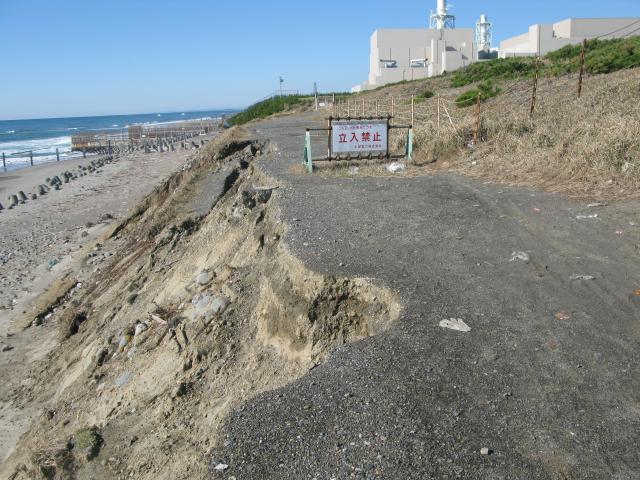As the tragedy continues to unfold in Japan, the U.S. nuclear energy debate has been reignited.
The New York Times points out that some potential 2012 Republican candidates have already reaffirmed their support for nuclear energy. After citing his concern for the crisis in Japan, Donald Trump recently stated:
“I’m in favor of nuclear energy, very strongly in favor of nuclear energy. If a plane goes down, people keep flying. If you get into an auto crash, people keep driving. There are problems in life. not everything is so perfect. But we do need nuclear energy, and we need a lot of it fast.”
Mississippi Governor Haley Barbour expressed similar sentiments, stating, “We need to study and learn and make sure that we continue to have safe reliable clean nuclear energy in the United States.”
But is there such a thing as “safe reliable clean nuclear energy”?
It’s not just Republicans who have classified nuclear power as “clean energy.” In President Obama’s State of the Union address this year, he set a clean energy goal – by 2035, 80 percent of electricity should come from clean energy sources. His “clean energy sources” include nuclear, natural gas, and coal.
There is debatably no such thing as “clean coal” and natural gas is only as clean as the water it contaminates.
This brings us to “clean” nuclear energy. First, the glaring issue of what happens when a catastrophe strikes a nuclear plant. The U.S. is currently warning people in Japan to stay at least 50 miles from the Fukushima nuclear facility, and small radiation spikes have been detected in Tokyo. Reports suggest that the workers who have stayed to combat the crisis at the nuclear facility may be older retirees, who might die of old age before nuclear-related cancers could kill them.
Obama thought Japan’s nuclear plants were safe. Mother Jones found a speech in which Obama cited Japan as a exemplary model of safe nuclear power, an example that America should emulate.
Here’s the problem. Let’s say no catastrophe strikes near a nuclear plant in the U.S. Say that the nuclear plant in California located less than one mile from a fault line, with no earthquake response plan, is never harmed. Putting aside the worst-case scenarios, nuclear energy is still not “clean energy.” It should not be Obama’s solution to climate change.
Some reports suggest that nuclear is in fact one of the worst energy sources for the environment. As the German Environmental Ministry once stated:
While the Obama Administration must shift away from nuclear energy, they must at the same time make a move from natural gas and coal. The Wall Street Journal recently posted a graph revealing that if nuclear plants were shut down, there would be an increased reliance on coal, which could raise our country’s carbon footprint. Although the graph shows a controversial estimate on the amount of greenhouse gases that nuclear power emits, it does show that alternative energy sources such as wind and geothermal are some of the cleanest energy options.
Recent events in Japan have raised concerns over nuclear energy. But disaster or not, it is time to remove nuclear, coal, and natural gas from Obama’s clean energy agenda.
Subscribe to our newsletter
Stay up to date with DeSmog news and alerts






